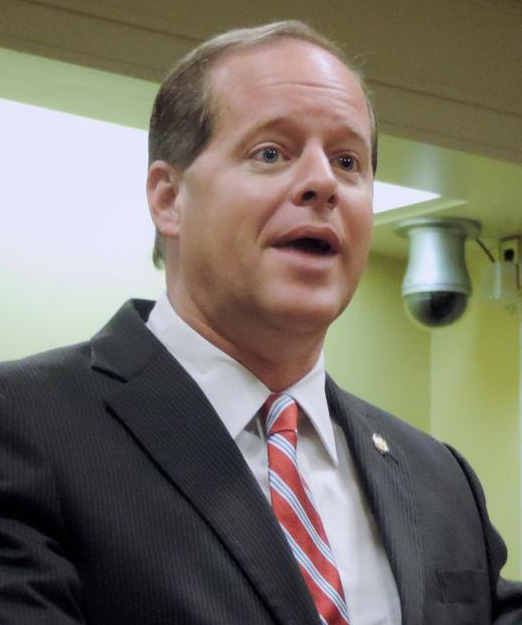MONTGOMERY — The Alabama Senate on Tuesday afternoon gave final passage to SB 163 as amended, a measure that removes many of the work restrictions that currently face people who have served the entirety of their prison sentence and paid full restitution.

Known as the Collateral Consequences Act, the bill was sponsored by Senator Cam Ward (R-Bibb, Alabaster) and drafted over a two-year period by the Alabama Law Institute, which used research and input by the Uniform Law Commission and the American Bar Association.
This thorough preparation helped lead to SB 163 receiving bipartisan support, passing unanimously both in the Senate originally and then the House as amended. The Senate concurred with the House’s amended version on Tuesday, sending the bill to Governor Kay Ivey’s desk.
Currently, there are 783 places in Alabama’s laws and regulations where citizens who have committed a crime are indefinitely barred from receiving various occupational and professional licenses.
“This is conservative criminal justice reform that recognizes the dignity of work,” Ward said in a statement. “I want to thank my colleagues in the House and Senate, on both sides of this aisle. We’re removing barriers for people who have already paid their debt to society, and who want to work hard and forge a new life for themselves and their families.”
Ward’s legislation allows a person who has served their full sentence and paid all restitution to petition a judge to obtain an order of limited relief. Once the order of limited relief is obtained, an occupational licensing board or commission is prohibited from automatically denying certification to someone with such an order. The board is required to conduct a fair hearing and consider the merits of the petitioner’s case.
However, the bill would not mandate that a board award a former inmate a license and would still maintain reasonable, commonsense barriers on certain felons, such as sex offenders.
“Frankly, this is part of a larger problem where we have too many layers of bureaucratic licensure requirements, many of which seemed designed to create barriers to entry for aspiring workers, rather than actually protecting consumers,” Ward added. “Once justice had been served, these citizens deserve every opportunity to find employment, support their families, and contribute to society.”
Some examples of collateral consequences in current Alabama law are as follows:
1) Anyone convicted of a felony cannot purchase a recreational vehicle dealership. (Ala. Code § 8-21C-6.)
2) Anyone convicted of a felony cannot be issued a license to operate a billiard room. (Ala. Code § 34-6-32.)
3) The Alabama Board of Registered Interior Designers may revoke, suspend, or refuse to issue a certificate of registration for anyone convicted of a felony. (Ala. Code § 34-15C-11.)
4) Anyone convicted of a felony cannot brew beer, mead, cider, or table wine for personal use. (Ala. Code § 28-4B-1.)
5) Anyone convicted of a felony cannot purchase a beer wholesaler business. (Ala. Code § 28-9-7.)
6) Anyone convicted of a felony cannot be licensed as a physical therapist. (Ala. Code § 34-24-217.)
7) Anyone convicted of a felony cannot be licensed as a private investigator. (Ala. Code § 34-25B-12.)
8) Anyone convicted of a felony cannot be licensed to be a vacation time-share salesman. (Ala. Code § 34-27-66)
Read the one-pager on SB 163 here.
State Rep. Chris England (D-Tuscaloosa) handled the bill in the House. Ward has called SB 163 his most important piece of legislation this session.














